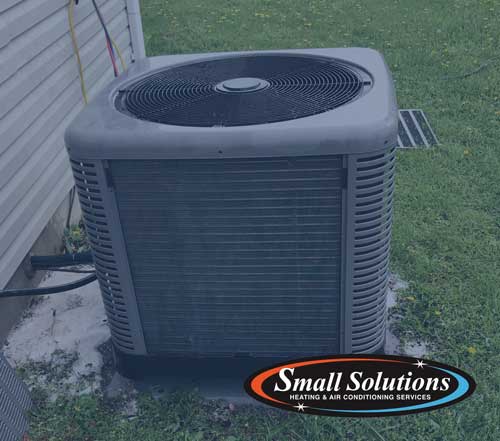Should you keep your old HVAC system, or upgrade to a new one?
Deciding whether to keep an old HVAC (that is, a heating, ventilation, and air conditioning system) or purchase a new one involves several factors that you should consider.
HVAC systems play a crucial role in maintaining comfort and energy efficiency in your home, so making the right decision is important. Here are some key points to help you make an informed choice:
Age of the System: The age of your current HVAC system is a significant factor. Most HVAC systems have a lifespan of around 10-15 years for air conditioners and 15-20 years for furnaces and boilers. If your system is approaching or beyond its expected lifespan, it might be more cost-effective to invest in a new, more energy-efficient model.
Energy Efficiency: Newer HVAC systems are designed to be more energy-efficient, which can lead to substantial cost savings on your energy bills over time. Older systems tend to be less efficient and may not meet current energy efficiency standards. Consider comparing your current system’s energy consumption to the potential savings of a newer system.
Repair Costs: If your old HVAC system requires frequent and costly repairs, it might be a sign that it’s time to replace it. As systems age, they become more prone to breakdowns and malfunctioning components. Compare the cost of ongoing repairs with the cost of a new system to determine which option is more economical in the long run.

4. Performance and Comfort: Newer HVAC systems offer improved technology, better temperature control, and enhanced comfort features. If your current system struggles to maintain a consistent and comfortable indoor environment, upgrading to a new system could provide a noticeable improvement in comfort and air quality.
5. Environmental Impact: Newer HVAC systems are designed to have a lower environmental impact by using more eco-friendly refrigerants and operating with higher energy efficiency. If you’re concerned about reducing your carbon footprint, a new system could align better with your environmental goals.
6. Tax Incentives and Rebates: Depending on your location, there might be tax incentives, rebates, or energy efficiency programs that encourage homeowners to upgrade to more efficient HVAC systems. These incentives can significantly offset the upfront cost of purchasing a new system.
7. Long-Term Savings: While a new HVAC system requires an upfront investment, it can lead to long-term savings through reduced energy consumption and fewer repair costs. Calculate the potential savings over the expected lifespan of the new system to determine its overall value.
8. Home Resale Value: Upgrading to a new HVAC system can enhance your home’s resale value, as prospective buyers are often attracted to modern and energy-efficient systems.
9. Compatibility and Ductwork: When considering a new system, ensure that it’s compatible with your home’s existing infrastructure, including ductwork. Sometimes, upgrading to a new system may necessitate modifications to the ductwork or other components.
In summary, the decision to keep an old HVAC system or purchase a new one depends on factors such as the age of the system, energy efficiency, repair costs, performance, environmental considerations, available incentives, long-term savings, and compatibility with your home. It’s often a good idea to consult with us, for we can assess your current system and provide recommendations based on your specific situation.


